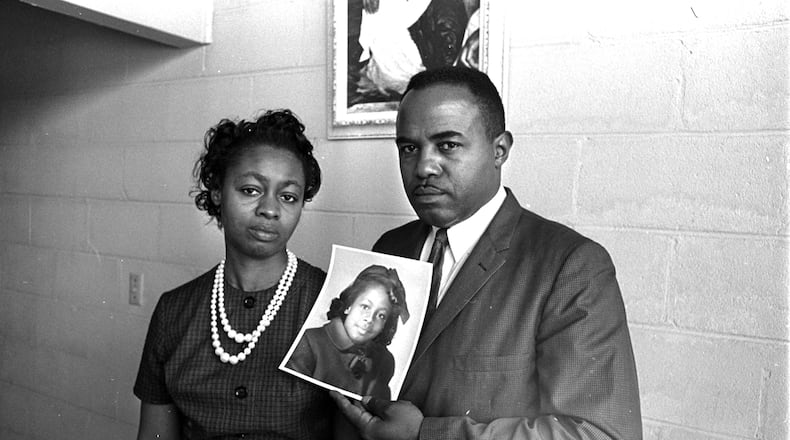“A Negro mother wept in the street Sunday morning in front of a Baptist Church in Birmingham. In her hand she held a shoe, one shoe, from the foot of her dead child. We hold that shoe with her.”
That is how former Atlanta Journal-Constitution executive editor Eugene Patterson begin his daily column that ran on Sept. 16, 1963.
It was the day after four little black girls became victims of America's virulent racism, when Klansmen used dynamite to blow up the 16th Street Baptist Church in Birmingham and murder them.
Patterson used the power of his pen to write "A Flower for the Graves" and challenge the white South to do better. To be better. "Every one of us in the white South holds that small shoe in his hand," he wrote.
Credit: AP file
Credit: AP file
Today, on the 54th anniversary of Patterson's column and the deaths of Addie Mae Collins, Cynthia Wesley, Carole Robertson and Carol Denise McNair, the AJC is re-running it in its entirety.
Log on to myajc.com to read "A Flower for the Graves."
»Local and indepth: How the AJC covered the civil rights movement
About the Author
The Latest
Featured




